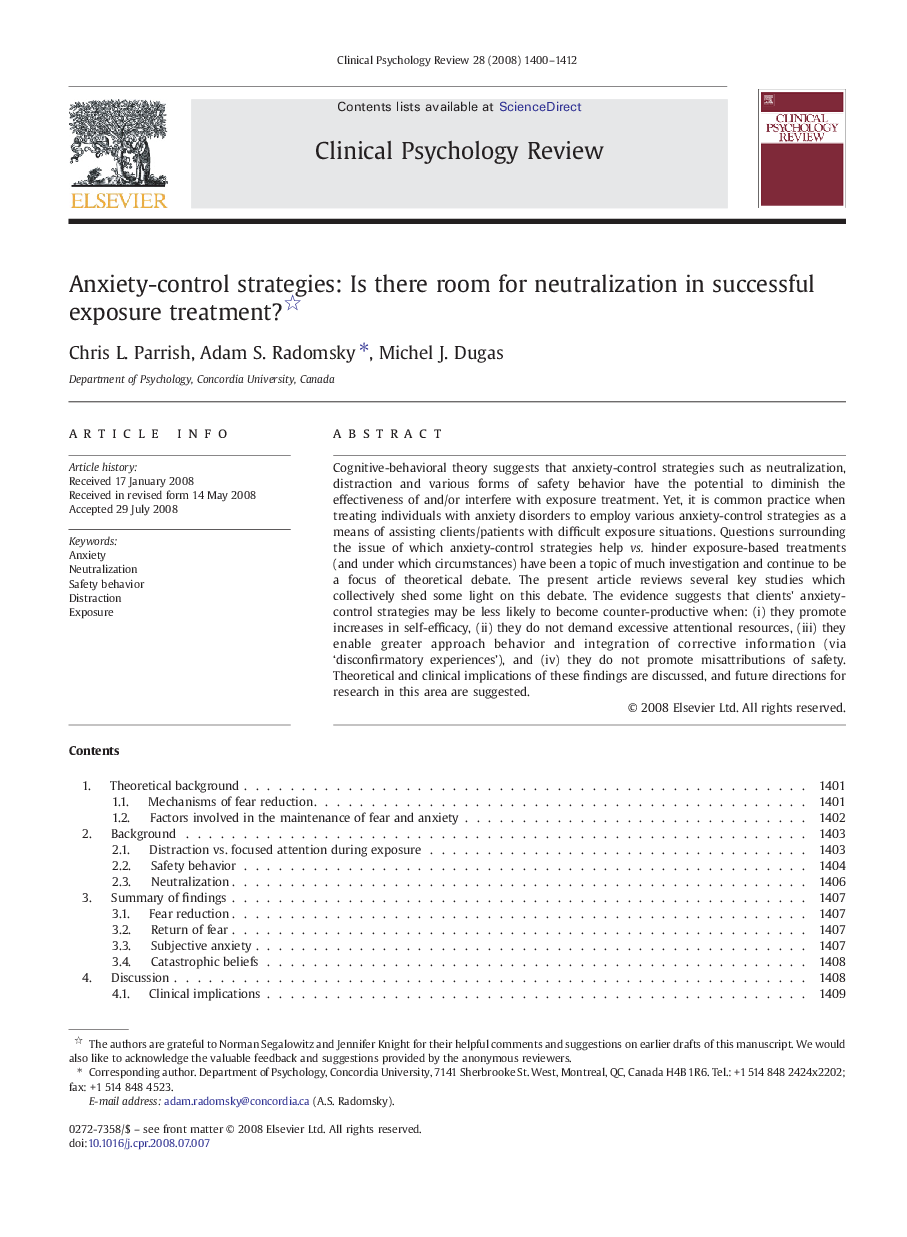| کد مقاله | کد نشریه | سال انتشار | مقاله انگلیسی | نسخه تمام متن |
|---|---|---|---|---|
| 904036 | 916619 | 2008 | 13 صفحه PDF | دانلود رایگان |

Cognitive-behavioral theory suggests that anxiety-control strategies such as neutralization, distraction and various forms of safety behavior have the potential to diminish the effectiveness of and/or interfere with exposure treatment. Yet, it is common practice when treating individuals with anxiety disorders to employ various anxiety-control strategies as a means of assisting clients/patients with difficult exposure situations. Questions surrounding the issue of which anxiety-control strategies help vs. hinder exposure-based treatments (and under which circumstances) have been a topic of much investigation and continue to be a focus of theoretical debate. The present article reviews several key studies which collectively shed some light on this debate. The evidence suggests that clients' anxiety-control strategies may be less likely to become counter-productive when: (i) they promote increases in self-efficacy, (ii) they do not demand excessive attentional resources, (iii) they enable greater approach behavior and integration of corrective information (via ‘disconfirmatory experiences’), and (iv) they do not promote misattributions of safety. Theoretical and clinical implications of these findings are discussed, and future directions for research in this area are suggested.
Journal: Clinical Psychology Review - Volume 28, Issue 8, December 2008, Pages 1400–1412